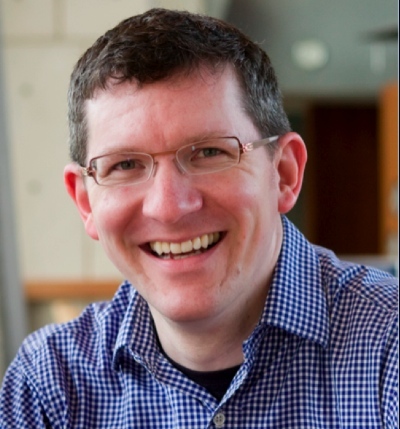 Andy Crouch is the author of Culture Making: Recovering Our Creative Calling, which Charlene Kwiatkowski asked him about in the following interview (excerpted from a longer piece in The Regent World) and, more recently, Playing God: Redeeming the Gift of Power, which he will speak on at Regent June 5. He will also be a panelist on the REDUX webcast May 16, along with Regent prof Rikk Watts.
Andy Crouch is the author of Culture Making: Recovering Our Creative Calling, which Charlene Kwiatkowski asked him about in the following interview (excerpted from a longer piece in The Regent World) and, more recently, Playing God: Redeeming the Gift of Power, which he will speak on at Regent June 5. He will also be a panelist on the REDUX webcast May 16, along with Regent prof Rikk Watts.
Charlene Kwiatkowski: Let’s talk about Culture Making, which has won multiple awards. What compelled you to write the book?
Andy Crouch: There were two different reasons, one of which I alluded to earlier: my sense that Christians and dominant North American culture were in a dysfunctional relationship. The way you know you are in a dysfunctional relationship is when each party sees the other at their worst.
When I heard Christians talk about culture, it was always about the most negative, exploitative, and broken things in culture.
And when Christians were represented in our media, I felt like people were seeing us at our most judgmental, fearful, and controlling.
So I thought we need to reset our posture toward culture. We can’t necessarily change the way our neighbours feel about us, but we can certainly change the way we relate to our neighbours.
The other stream of influence was more personal. When I was working as a campus minister at Harvard, I discovered that I had very thin theological resources to help students understand why they were in school. We were very committed to calling our students to a kind of downward mobility, but that raised the question: why are we still at Harvard, spending so much money and time on education, when we could move into an inner city neighbourhood and live among the poor?
Ultimately, this was a question of culture – what it means to be present in the culture, and I did not have a rich, biblical way of articulating to my students why they should stay at Harvard and not just drop out and be a good Christian somewhere else.
So the book also came from a sense that Christians needed a richer vision of our calling in the world that would encompass what we do in the lab, the library, or as part of the team rowing on the Charles River at five in the morning.
CK: What is the vision you set out for Christians in Culture Making?
AC: Basically, what I say is that we’ve spent the last hundred years (at least in the US context) condemning, critiquing, copying and then consuming culture. None of these is an adequate vision.
Instead, we’re meant to be cultivators: people who keep, preserve and care for what is good in the world. And then to the extent that culture is broken and there are things missing, we are also called to be creators and add to culture, because ultimately the only way to change culture is to make more culture.
You don’t change it when you just condemn it or critique it, or when you copy or consume it. But if you cultivate it, then you acquire both the skills and the legitimacy to say, “I think something’s missing here” and offer a creative response to what’s missing.
I think that’s what all human beings are meant to be and what all Christians should embrace as their calling.
CK: I got the sense from your book that everybody can make culture, but is culture making easier to imagine for certain vocations, like artists who create things for a living? What about dentists, accountants, or lawyers? How does your idea of culture making apply to all people and all vocations?
AC: First, it’s very important that the vision is not just creativity understood in the narrow, capital-R Romantic sense of the individual self-expressing him or herself to the world.
That might be part of what we’re here to do, but human beings are here in a comprehensive way to seek the flourishing of the world, and that requires not just creating but cultivating. Some professions focus much more on the cultivation side of the human calling than the creating side.
Let’s take plumbers. I don’t necessarily want a creative plumber. In fact, if my plumber came over and said, “I have a completely new plumbing system I want to put in,” I would look quite askance at that because I want him to keep a good thing good. We’ve already got this wonderful cultural inheritance called plumbing and it requires a great deal of skill and tacit knowledge to maintain.
Same thing with dentists – my dentist is helping me keep my health, and that’s an amazing contribution to human flourishing.
One of our problems is that we privilege radical, innovative artists in a way that excludes almost everyone from what counts as cultural creativity since what most of us spend our days doing is keeping things good.
Secondly, there’s a sense of individualism we easily fall into when we think, “I have to be the creative one.” The most creative forces in the human story are communities, not individuals. Communities need a variety of gifts working together to create things that influence on a broad scale.
Charlene Kwiatkowski is a writer and editor in Regent College’s marketing and communications department, and the managing editor of The Regent World. She also blogs about art, literature and architecture here.
